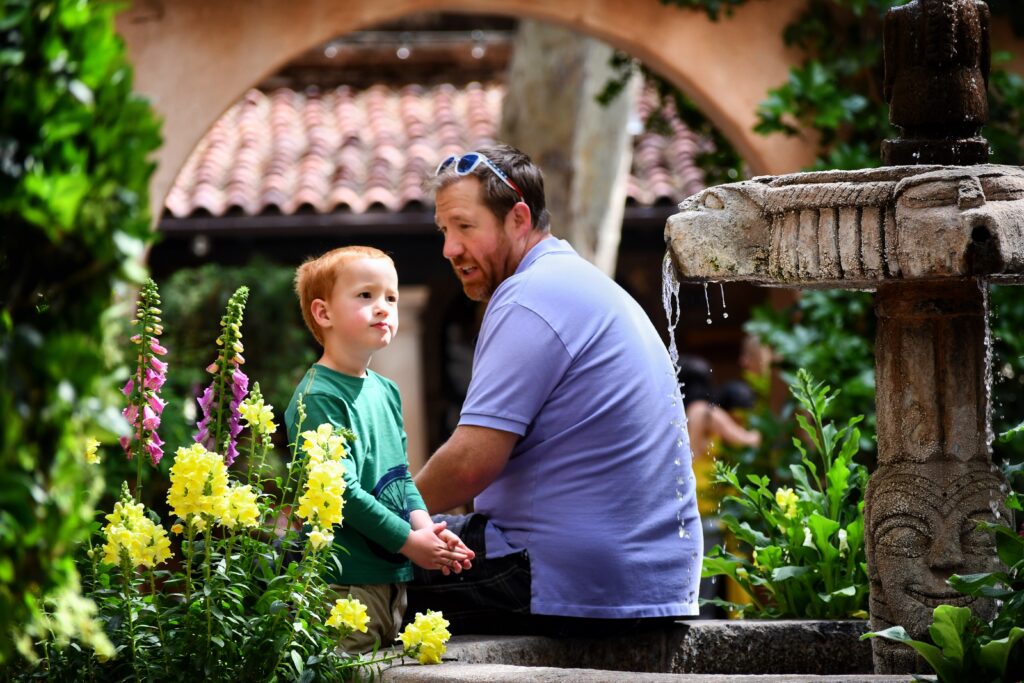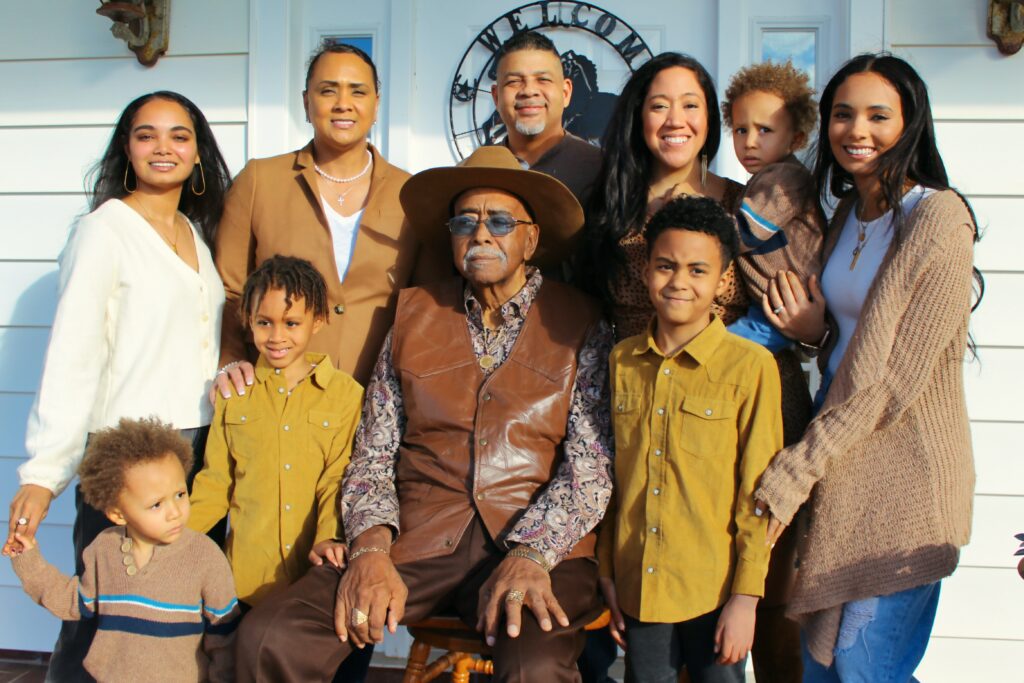Is “Heavenly Father” Just a Title or an Active Role?
Find God’s Unconditional Love Demonstrated Through His Fatherly Actions in Your Life

For many years I have accepted by faith that God is my heavenly Father. Some people refer to Him as “God the Father.” I have heard it said that people who have had challenging, if not downright horrible experiences with their earthly fathers will have difficulty accepting God as their heavenly Father. Although I did not grow up with a consistent father figure in my life – my mother was married and then divorced four times before I graduated from high school – I didn’t struggle with accepting God as a heavenly Father. But the reason I didn’t struggle is because I just accepted the term “heavenly Father” or “God the Father” as one of God’s many names or titles, such as I Am (Exodus 3:14), Jehovah (Psalm 83:18), Rock (Deuteronomy 32:4), Redeemer (Isaiah 41:14), Refuge (Isaiah 25:4). The name didn’t mean much to me. I didn’t view God as an active Father.
As I followed Jesus and sought to know Him better through prayer and Bible reading, He began showing me how He has actively fathered me throughout my life. In a series of blog posts, I will share with you some aspect of God that mirrors how we expect our earthly fathers to raise us, but God does it in a much better way. In this first post, I will introduce God as an active Father. Whether or not you had a good, consistent father in your life, read on to discover how God has fathered you.
God Actively Fathers Us
We all have a heavenly Father who loves us (1 John 3:1). As Christians, we know Jesus is our everlasting Father (Isaiah 9:6). Yet we often accept “everlasting Father” as one of Jesus’s titles without recognizing that He actively fathers us. In the next few paragraphs, I will share just a few examples of how Jesus has fathered me, which I will expound on in later posts.

We usually look at parents as role models in our lives. They teach us how to behave in society and in our own homes when we reach adulthood. If they haven’t loved and protected us as we needed during childhood, we tend to fear we will be just like them when we are adults. But we don’t have to be just like them. In fact, our heavenly Father through the Holy Spirit makes us Christ-like: “But we all, with open face beholding as in a glass the glory of the Lord, are changed into the same image from glory to glory, even as by the Spirit of the Lord.” (2 Corinthians 3:18.) God fathers us by forming us in His image and helping us to mature to be Christ-like. When we do not feel our parents’ love, perhaps viewing them as lacking patience and gentleness toward us, we do not need to fear that we will also be impatient and harsh. As we reflect on our lives, we will see that God helped us mature in the fruit of the Spirit which is “love, joy, peace, longsuffering, gentleness, goodness, faith, meekness, temperance.” (Galatians 5:22–23.) One way God fathers us is by helping us become responsible, loving, mature adults.

God also fathers us by loving us unconditionally. When our parents aren’t consistent in their love for us, we begin feeling unloved. We may even wonder if God can possibly love us if our own parents didn’t fulfill that basic role of a parent. When God told Jeremiah, “I have loved thee with an everlasting love” (Jeremiah 31:3), He did not mean this for Jeremiah’s ears only. God loves us (you and me) with an everlasting, unconditional love. There is nothing we can do to end His love for us. He lavishes on us His great love, calling us children of God (1 John 3:1). How do we know? Because when sin entered into the world through Adam and Eve and separated us from God (Genesis 3:22–24; Romans 5:12), He came into the world and died in our place so that our relationship with Him may be restored (Romans 5:8; 1 John 2:2). Even today when we mess up, when we miss the mark, God continues to love us. There is nothing we can do to fall outside of God’s love.
And for my last example, please consider how we all long to be part of a healthy, functional family. When we have been raised in dysfunction with absent fathers, whether physically or emotionally absent, we dream of being part of a cohesive family. And that is exactly what God provides us when we become part of the family of God.
God creates a healthy, loving family among His children (Psalms 68:6). We have Christian brothers and sisters to walk through life with us. We are taught to be good to one another (Galatians 6:10) and to rejoice with each other when one of us is honored (1 Corinthians 12:26). When one of our brothers or sisters suffer, we all suffer together (1 Corinthians 12:26). Jesus Himself was an example of love for us and taught us to love one another as He loved us (John 13:34).

In this family we are given elders who guide us like grandparents, parents, aunts, and uncles would in a healthy, natural family. We are instructed not to rebuke our elders but to show them respect by encouraging them as we would our fathers and mothers (1 Timothy 5:1–2). And the elders are to teach the younger generations how to live and conduct themselves (Titus 2:2–5). We are set in the family of God with everything we need to live in love, functioning like the healthy family we have all dreamed of. This family gathers together and encourages one another (Heb. 10:24–25).
The family of God is not perfect; after all, it is comprised of human beings. We have sibling rivalry. Often siblings fight and complain because each one feels their parents treat other siblings better, such as spending more time with them or buying nicer things for them. Similarly, Christian brothers and sisters may get disgruntled because they feel the pastor or music director gives other people more opportunity to minister, such as speaking in church services or singing specials more often. We have the younger testing the boundaries of the older. The older brothers and sisters still like singing hymns while the younger ones prefer upbeat praise songs, and they will push the boundaries of the traditional songs. But God gives instructions for handling such things in a loving, healthy manner. We are to be merciful, kind, humble, meek, patient, forgiving (Colossians. 3:12–13). God gives us a family of God that is loving, functional and fulfills all that we have dreamed of for a family. He is our active Father!
God Fathers You
In this series of posts, I will share with you how God fathered me through many events and circumstances in my life. I am not, and you are not, fatherless, no matter what our relationships with our earthly fathers look like. You are not fatherless even if you have never met your earthly father. I hope as you read this series of posts and see how God fathered me, you will think on your own life and consider the areas in which your father seems to have fallen short. Consider how God helped you overcome those things. Reflect on your own life and see anew how God has fathered you. We can be confident that God actively fathers us throughout our lives.

Adapted from Hey Dad, It’s Me! Discover the Father Who Loves and Protects You, to be published in October 2021.

